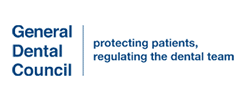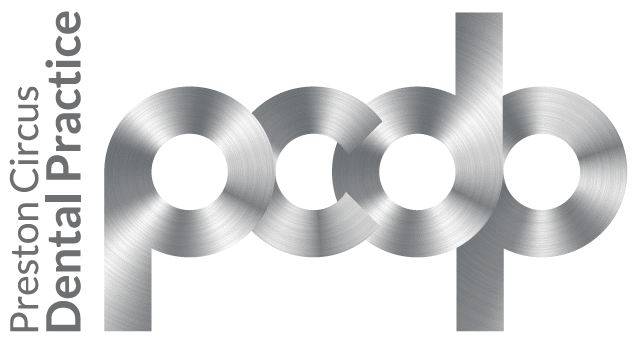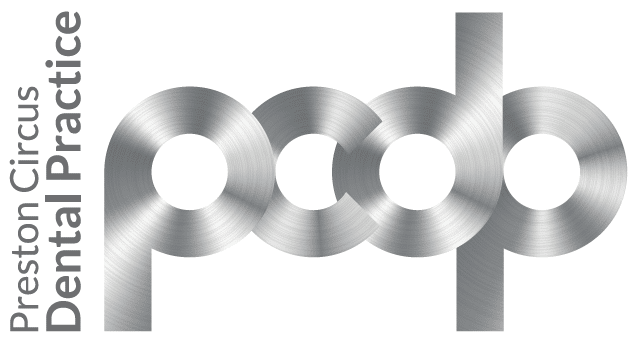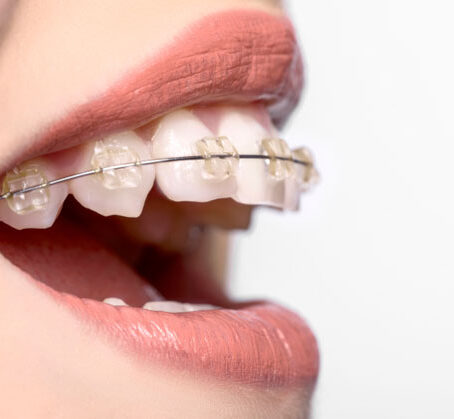The term “periodontal” means “around the tooth.” Periodontal disease (also known as periodontitis and gum disease) is a common inflammatory condition which affects the supporting and surrounding soft tissues of the tooth; also the jawbone itself when in its most advanced stages. The team at our Brighton clinic offer a range of periodontal treatments to help our patients reclaim their oral health.
Periodontal disease is most often preceded by gingivitis which is a bacterial infection of the gum tissue. A bacterial infection affects the gums when the toxins contained in plaque begin to irritate and inflame the gum tissues. Once this bacterial infection colonizes in the gum pockets between the teeth, it becomes much more difficult to remove and treat. Periodontal disease is a progressive condition that eventually leads to the destruction of the connective tissue and jawbone. If left untreated, it can lead to shifting teeth, loose teeth and eventually tooth loss.
Periodontal disease is the leading cause of tooth loss among adults in the developed world and should always be promptly treated.
Types of Periodontal Disease
When left untreated, gingivitis (mild gum inflammation) can spread to below the gum line. When the gums become irritated by the toxins contained in plaque, a chronic inflammatory response causes the body to break down and destroy its own bone and soft tissue. There may be little or no symptoms as periodontal disease causes the teeth to separate from the infected gum tissue. Deepening pockets between the gums and teeth are generally indicative that soft tissue and bone is being destroyed by periodontal disease.
Here are some of the most common types of periodontal disease:
-
Chronic periodontitis – Inflammation within supporting tissues cause deep pockets and gum recession. It may appear the teeth are lengthening, but in actuality, the gums (gingiva) are receding. This is the most common form of periodontal disease and is characterized by progressive loss of attachment, interspersed with periods of rapid progression.
-
Aggressive periodontitis – This form of gum disease occurs in an otherwise clinically healthy individual. It is characterized by rapid loss of gum attachment, chronic bone destruction and familial aggregation.
-
Necrotizing periodontitis – This form of periodontal disease most often occurs in individuals suffering from systemic conditions such as HIV, immunosuppression and malnutrition. Necrosis (tissue death) occurs in the periodontal ligament, alveolar bone and gingival tissues.
-
Periodontitis caused by systemic disease – This form of gum disease often begins at an early age. A medical condition such as respiratory disease, diabetes and heart disease are common cofactors.
Treatment for Periodontal Disease
There are many surgical and nonsurgical treatments the periodontist may choose to perform, depending upon the exact condition of the teeth, gums and jawbone. A complete periodontal exam of the mouth will be done before any treatment is performed or recommended.
Here are some of the more common treatments for periodontal disease:
-
Scaling and root planning – In order to preserve the health of the gum tissue, the bacteria and calculus (tartar) which initially caused the infection, must be removed. The gum pockets will be cleaned and treated with antibiotics as necessary to help alleviate the infection. A prescription mouthwash may be incorporated into daily cleaning routines.
-
Tissue regeneration – When the bone and gum tissues have been destroyed, regrowth can be actively encouraged using grafting procedures. A membrane may be inserted into the affected areas to assist in the regeneration process.
-
Pocket elimination surgery – Pocket elimination surgery (also known as flap surgery) is a surgical treatment which can be performed to reduce the pocket size between the teeth and gums. Surgery on the jawbone is another option which serves to eliminate indentations in the bone which foster the colonization of bacteria.
-
Dental implants – When teeth have been lost due to periodontal disease, the aesthetics and functionality of the mouth can be restored by implanting prosthetic teeth into the jawbone. Tissue regeneration procedures may be required prior to the placement of a dental implant in order to strengthen the bone.
If you have any questions or concerns about periodontal disease or treatments, please contact our friendly Brighton based team.
FAQs about periodontal treatment
What is periodontal treatment?
Periodontal treatment refers to a range of procedures and therapies aimed at diagnosing and treating various conditions that affect the supporting structures of the teeth, including the gums, bone, and periodontal ligament. These conditions are collectively known as periodontal diseases.
What are the common types of periodontal diseases?
There are several types of periodontal diseases, each with its own characteristics and effects on the gums and supporting structures of the teeth. The most common types include Gingivitis (the mildest form relating to an inflammation of the gums), Chronic Periodontitis (characterised by progressive inflammation and destruction of the gum tissue and bone supporting the teeth), Aggressive Periodontitis (characterised by the rapid destruction of the gum tissue and bone, leading to tooth loss if left untreated) and Necrotising Periodontal Disease (characterised by the death of gum tissue due to factors such as smoking or poor nutrition).
Why is periodontal treatment necessary?
Periodontal treatment is necessary for the prevention and control of infection, as patients in the early stages of periodontal disease may experience the destruction of gum tissue, bone loss, and ultimately tooth loss, without a periodontal care plan. Furthermore, treating periodontal diseases has been shown to help with systemic health issues, reducing the probability of connected conditions such as cardiovascular disease, diabetes, and respiratory infections.
How much will periodontal treatment cost?
The cost of periodontal treatment depends on various factors such as the specific type of treatment needed and the severity of the disease. Here at Preston Circus Dental Practice, we offer a range of finance options to help you cover the cost of your treatment. Speak to our friendly Brighton based team for further information.
Why should I use Preston Circus Dental Practice for my periodontal treatment?
We are a team of highly trained and experienced dentists, who have helped many patients to successfully tackle periodontal issues. We are particularly accommodating with nervous patients and will do everything we can to make you as comfortable as possible throughout the treatment process. We’re also based close to the centre of Brighton, so we can be easily reached from the train station and other parts of the city.







